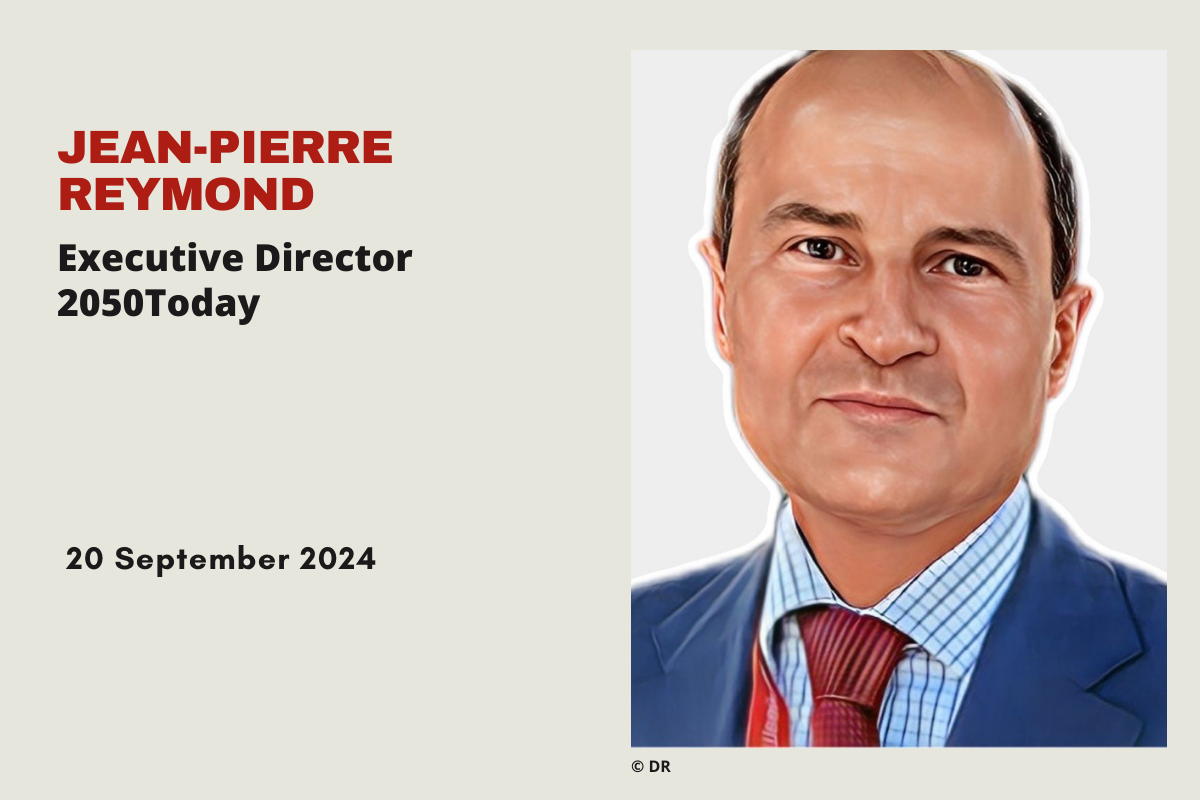The interview | Jean-Pierre Reymond
 | How would you present your organization in a few words? What entails your position? What is your goal? |
2050Today is the Geneva climate action Forum where institutions of International Geneva, such as permanent missions, International organizations, academia, private and civil society entities, come together to tackle climate change by measurably reducing GHG emissions.
As Executive Director, my role is to mobilize and encourage these institutions to take concrete steps to reduce their climate footprint, in cooperation with local authorities.
Our goal is to promote climate action by implementing the 2050Today Charter of decarbonization. We aim to contribute to a 60% reduction in GHG emissions by 2030, in line with the objectives of the City and Canton of Geneva, and to reach net zero by 2050. We are convinced that International Geneva, with its influence throughout the world, has a duty to set an example by taking resolute action against climate change, as urged by the IPCC.
 | Among the concentration of actors in Geneva (IOs, NGOs, permanent missions, academia, and the private sector), who do you work with and how? |
All institutions of International Geneva are welcome to join our initiative, regardless of size or area of activity. Our strength is our ability to bring everyone together to move faster and go further.
We are currently working with 70+ institutions that have made a commitment to measure their emissions and implement common or customized solutions in line with the 2050Today Charter. We assist and advise them on how to measure their carbon footprint and develop their own climate action plan. We have created six thematic working groups (Food, Biodiversity, Energy, Waste Management, Mobility, and Sustainable IT), which include representatives of the Geneva authorities.
We connect the climate work done by International Geneva with local initiatives and vice versa, and share good practices for overcoming shared challenges. We support joint projects, such as developing solar installations, creating carpooling communities, studying the climate impact of International events, and highlighting the environmental footprint of institutions' digital activities.
2050Today works closely with the Swiss government, the Canton of Geneva, the City of Geneva, the University of Geneva, and the Industrial Services of Geneva (SIG). These institutions have joined forces to support the decarbonization of International Geneva through this unique initiative.
 | What are the strengths and weaknesses of Geneva with regards to the development of your activity? |
Geneva is a hub for International cooperation. It is home not only to the UN's second-largest global headquarters but also to more than 40 International organizations, 181 diplomatic missions, and around 750 NGOs. This is a unique force for joint action at an International level, which should be used to disseminate good practices for climate action and environmental awareness.
However, this strength is not yet used to its full potential. Many institutions still have a lot of scope to implement reductions in their CO2 emissions across their operations and take an active part in the many excellent climate initiatives that exist at the local level.
Helping to build a better world – International Geneva’s central objective – requires us to reduce our climate impact, because protecting the ecosystem of our planet is the only way to guarantee a safe habitat for humanity and, hence, a better world.
 | What do you think global governance should look like 20 or 30 years from now? |
The United Nations already provides an outstanding governance framework. While it could certainly be improved, it could mainly be much better used. We don't need to change the system so much as the paradigm. In a globalized world where humans have become so dependent on fossil fuels that they have upset the balance of our planet, the sum of national interests can no longer be our guiding principle. The repercussions of our actions are now global, so we must organize globally to ensure that global governance focuses on the common interest of each and every person. Unfortunately, given the current state of the world and our planet, we cannot afford to wait 20 or 30 years for this paradigm shift to occur!
 | What question would you like to have been asked? And what keeps you “awake at night”? |
I would have liked to be asked why governments are still unable to take decisive action – such as universal carbon pricing – to fight the climate disruption that threatens human life as we know it.
The fact that we have already exceeded six of the nine planetary boundaries, including climate, biodiversity, pollution by new non-natural products and soil degradation, should motivate us daily to change the way we function, at both the individual and the global level. The need to return to a state of balance that ensures safe living conditions for our species has become a physical imperative. Human societies have never before ensured the well-being of so many individuals. And never before have we, through our actions, threatened to upset the very balance of our ecosystems and, consequently, our common prosperity.
The urgency of this deterioration should not keep us from sleeping well at night, but rather keep us awake by day so we can work relentlessly together to overcome this challenge, in a spirit of solidarity.
